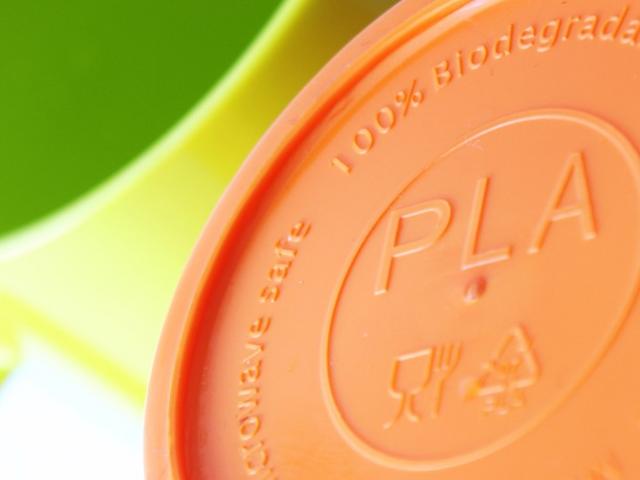
EIPR appeals the executive regulations of "Waste Management Law" for plastic alternatives
Press Release
On April 19, 2022, the Egyptian Initiative for Personal Rights (EIPR) filed an appeal against the executive regulations of the Waste Management Law, which was issued on February 22, 2022. The appeal concerned Article 18 of the regulations, which considered biodegradable plastic a “safe, environmentally friendly alternative,” and provided a range of incentives and benefits for its manufacture and import. The executive regulations did not specify the type of biodegradable plastic, but the Ministry of Environment had previously encouraged the use of the oxy-biodegradable type of plastic, which has not been scientifically proven a safe alternative to plastic, and there are legislations prohibiting its use in many countries of the world.
The problem of plastic waste has reached a frightening extent globally, more than 6 billion tons of plastic waste are accumulating all over the world, annually, about 13 million tons of plastic waste are released into our oceans, with single-use plastic - such as plastic bags – accounting for half of these amounts. Plastic wastes are scattered in the environment, may be eaten by animals, birds and livestock, suffocating or getting sick thereby. They may also block channels and waterways, and, when burned, leak toxic substances into the air and groundwater.
The main problem with plastic is that it degrades very slowly. A plastic water bottle takes about five hundred years to break down into fine particles (microplastics). These microplastics do not completely degrade in the environment, but accumulate and enter the food chain.
Oxo-biodegradable plastic, the type that degrades by "oxidation", is made from the same materials used in the manufacture of conventional plastic, but it contains small concentrations of additives that accelerate the process of breaking plastics into small particles, claiming that this then facilitates its full biodegradation.
However, a large number of scientists, international and governmental institutions, and trade associations are of the opinion that there is no certainty that oxy degradable plastic particles completely biodegrade in the environment. They confirm that -on the contrary- it increases the accumulation of microplastics in nature.
A 2015 United Nations Environment Program report, "Oxidative Biodegradable Plastics and Marine Litter," noted that the complete biodegradation of plastic requires conditions that are not achievable in marine environments, and that it just disintegrates so slowly that it does the same damage as regular plastic to marine organisms. In 2018, the European Parliament decided that this type of plastic does not meet European Union standards, and countries such as France and Italy banned its use.
Even manufacturers and traders from major brands such as Marks & Spencer, Nestle, Tesco as well as a large number of environmental organizations, academics and associations of manufacturers and recyclers of plastic material opposed it. In 2017, 150 global bodies made an appeal for a ban on oxidation-degradable plastics.
Marketing oxidizable plastic as a solution to the problem of plastic waste weakens efforts to comprehensively confront plastic waste, and only encourages the replacement of the traditional plastic bag with another one, claiming that the latter is environmentally friendly, which reduces the public's eagerness to get rid of traditional bags, and encourages behaviors that increase waste scattering.
Also since it is a cheap product , it competes and outperforms the truly environmentally friendly packaging products because these are often more expensive. In addition, this type of plastic also impairs the quality of recycling products because of the additives added which contribute to its quick fragmentation.
Ahmed Al-Saidi, EIPR Environmental lawyer, said that the law regulating waste management issued in October 2020 is the first legislation regulating single-use plastic waste, and setting controls on its manufacture and handling due to its danger to health and environment. The law issuance was a good step, but the replacement of single-use plastic bags with oxo- biodegradable plastic bags, stated in the regulation, empties the efforts to combat plastic of their substance and may increase damages to the environment.”
According to El-Saidi, the relevant paragraphs in Article 18 of the regulation includes an explicit violation of Articles 45 and 46 of the Egyptian Constitution, which prohibits encroachment on the marine environment and its pollution, rational use of natural resources and non-harm, as well as the text of Article 48 of the Environmental Protection Law, which aims to protect the marine environment from all forms of pollution, and the text of Article 27 of the Waste Management Regulations Law, which addressed safe, environmentally friendly alternatives.
It is expected that many manufacturers and traders would be in favor of using oxo-degradable plastic, perhaps because it is an easy solution to maintain the profits of the plastic industry, as it is the cheapest alternative and its production does not require major modification in technology, machinery or training of workers. But the duty of the legislator and the administration is to protect the people and the environment in the first place before the gain of the merchants.
Egyptians use about 12 billion plastic bags every year, and Egypt leads the countries bordering the Mediterranean coast in terms of dumping plastic waste into the sea. Alexandria is the third most polluted city on the shores of the southern Mediterranean. Egypt faces great difficulties in dealing with waste, and the percentage of waste collected is almost half of its amount in urban areas, while in the countryside it ranges between 0 and 30%; the rest accumulates in roads and waterways or is openly burned.
Only 10% of the collected waste is recycled and almost all of the rest is disposed of mostly in open landfills. With weak legislative, administrative and funding structures, weak capacities and prevailing behaviors, allowing Oxo-degradable plastics will only make the situation worse.



